Solo Travel Safety Guide: Essential Tips for Safe and Secure Solo Adventures
Discover the ultimate solo travel safety guide with practical tips and resources to ensure a secure and enjoyable solo adventure. Learn how to stay safe, choose the right accommodations, and navigate unfamiliar cities with confidence.
Traveling solo can be one of the most enriching and liberating experiences of your life. Whether you're seeking adventure, personal growth, or simply the freedom to explore at your own pace, solo travel offers countless rewards. However, with this independence comes the responsibility of ensuring your own safety. This guide provides practical tips and resources to help you stay safe while enjoying the journey of solo travel.
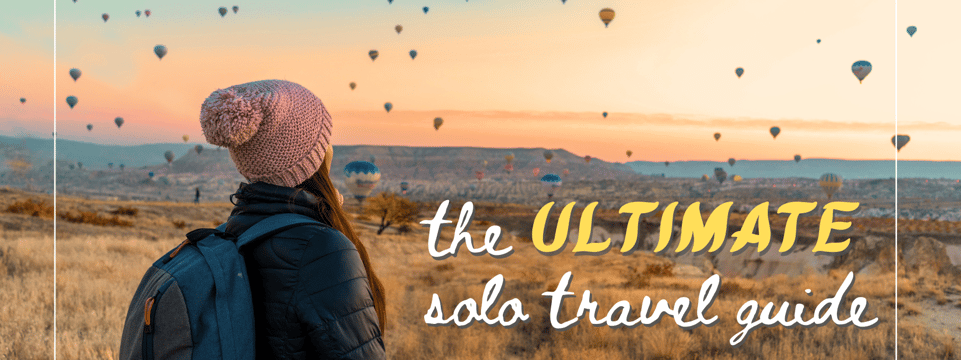

1. Stay Aware of Your Surroundings
When you're traveling solo, you're more vulnerable to potential risks simply because you're alone. It's easy to get lost in the excitement of discovering new places, but staying alert is crucial for your safety.
Be Vigilant: Always be mindful of your surroundings, especially in crowded areas such as markets, public transport, and tourist attractions. Keep your belongings close and avoid displaying valuables openly.
Know the Area: Before venturing into a new location, do a quick search on any areas that might be risky, especially at night. Familiarize yourself with the local neighborhood and identify safe spots such as cafes, hotels, and police stations where you can retreat if needed.
Trust Locals: Engage with locals to get a better understanding of which areas are safe to explore and which ones to avoid. Most locals are more than happy to offer advice to keep you safe.
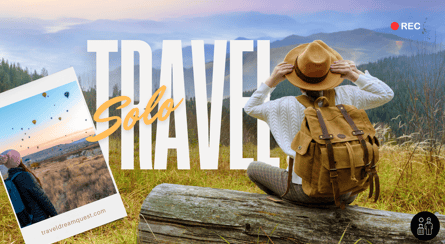



2. Keep in Touch
Staying connected with someone back home not only provides peace of mind for your loved ones but also ensures that someone knows your whereabouts in case of an emergency.
Share Your Itinerary: Make sure a family member or friend knows your travel plans, including where you’ll be staying and any changes in your itinerary. Regular check-ins through WhatsApp, email, or social media can help keep them informed.
Set Up Regular Updates: Arrange a time for regular updates, whether it’s a daily text or a quick call every few days. This habit will ensure someone is always aware of your location and plans.
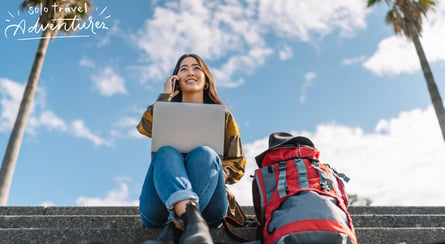



3. Use Trusted Apps
Technology can be your best friend when it comes to staying safe on the road. Trusted apps can help you navigate new cities, stay connected, and even alert others if you’re in danger.
Navigation Apps: Use Google Maps or Maps.me for reliable navigation. These apps help you find your way around and locate nearby amenities.
Safety Apps: Consider using safety apps like bSafe or Life360 that allow you to share your real-time location with trusted contacts. Some apps even have an emergency button that sends alerts to your contacts if you’re in trouble.
Language Apps: If you’re in a country where you don’t speak the language, Duolingo or Google Translate can be invaluable tools for communication.
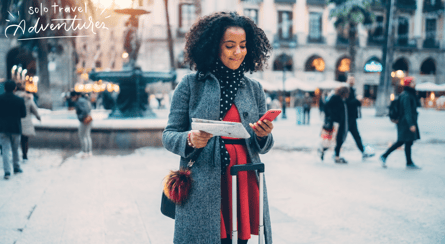



4. Blend In
Standing out as a tourist can make you a target for scams or theft. By blending in with the local culture, you reduce the risk of drawing unwanted attention.
Dress Appropriately: Research local customs and dress codes before you arrive. In some cultures, modest dressing is required, while in others, blending in might mean dressing more casually.
Learn Basic Phrases: Even if you don’t speak the local language fluently, learning a few key phrases can help you connect with locals and navigate your way more smoothly.
Avoid Tourist Traps: Try not to consult maps or guidebooks in the middle of the street. Instead, find a discreet spot, like a café, to plan your next move.
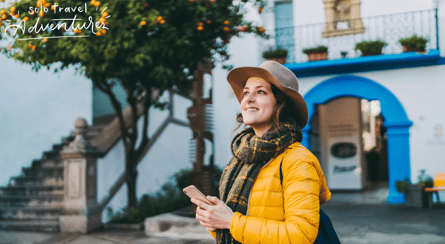



5. Stay Connected
Having a reliable way to communicate is essential, especially in emergencies. Ensure you can always make a call or access the internet when needed.
Local SIM Cards: Purchase a local SIM card upon arrival for reliable data and calling services. This is often cheaper and more dependable than international roaming plans.
Portable Charger: Carry a portable charger to keep your phone powered throughout the day. Your phone is your lifeline for maps, communication, and safety apps.
Backup Options: Consider carrying a backup phone or a power bank with preloaded emergency contacts and important travel documents.
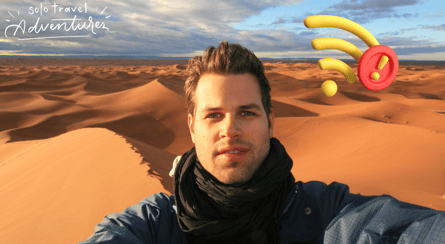



6. Avoid Sharing Too Much
While it’s nice to meet new people and share your experiences, oversharing can put you at risk, especially when it comes to details about your accommodation or travel plans.
Be Cautious with Strangers: Be friendly but mindful when talking to strangers. Avoid giving out too much personal information or specifics about where you’re staying.
Social Media: Be careful with what you post on social media. Consider sharing updates after you’ve left a location rather than in real-time.
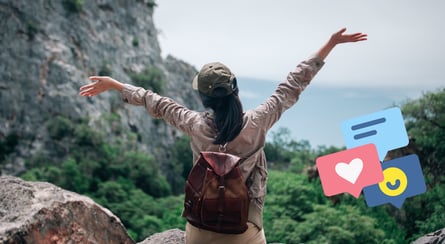



7. Choose Accommodations Wisely
Where you stay can greatly impact your safety. Opting for well-reviewed and reputable accommodations can make a big difference in your overall travel experience.
Read Reviews: Use platforms like Airbnb, Booking.com, and Hostelworld to find accommodations with positive reviews from other solo travelers. Pay attention to comments about safety, location, and the quality of the facilities.
Check Location: Ensure your accommodation is in a safe neighborhood, close to public transport, and has easy access to essential services like restaurants, pharmacies, and supermarkets.
Secure Your Space: Once you’ve checked in, familiarize yourself with the safety features of your accommodation, such as locks, security cameras, and fire exits.
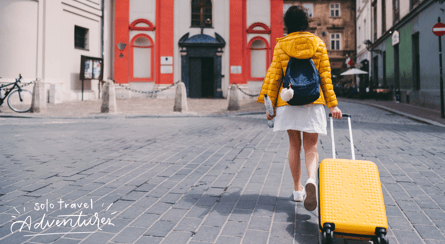



8. Trust Your Instincts
Your instincts are your best guide in unfamiliar situations. If something feels off, it probably is, and it’s better to err on the side of caution.
Listen to Your Gut: If you feel uneasy about a situation, don’t hesitate to remove yourself. Whether it’s a sketchy street, an uncomfortable interaction, or a suspicious offer, trust your instincts and find a safer environment.
Be Prepared to Say No: Whether it’s declining an invitation or refusing help from a stranger, it’s okay to say no if it doesn’t feel right.




9. Have Emergency Contacts Ready
In case of an emergency, having quick access to critical information can be lifesaving.
Emergency Numbers: Research and save local emergency numbers, such as the police, ambulance, and fire department, before you arrive.
Embassy Information: Keep the contact details of your country’s embassy or consulate handy. They can provide assistance in various situations, from lost passports to legal issues.
Accessible Information: Store these contacts in your phone and also write them down on a piece of paper in case your phone battery dies or it’s lost.
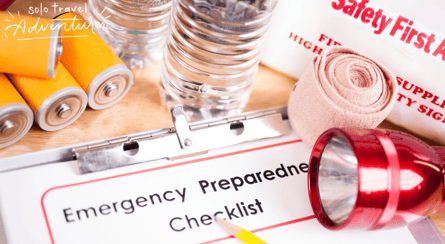



10. Resources for Solo Travelers
Being prepared can make all the difference when you're traveling alone. Here are a few resources and tools that can enhance your solo travel experience:
Travel Apps: Download essential apps like Google Maps for navigation, Duolingo for language translation, and XE Currency Converter to keep track of your expenses. Safety-specific apps like bSafe and Smart Traveler can also be incredibly useful for solo travelers.
Online Communities: Connect with other solo travelers through online communities like Couchsurfing, Solo Traveler World, or even Reddit forums. These platforms offer a space to ask questions, share tips, and sometimes even meet up with fellow travelers.
Local Guides: Consider hiring a local guide for a day to help you get acquainted with the city and its safe spots. This can be especially helpful in cities where language barriers might be an issue.
Insurance: Make sure you have comprehensive travel insurance that covers not only health but also trip cancellations, lost luggage, and other potential mishaps. Companies like World Nomads and Allianz offer policies tailored to the needs of solo travelers.
Traveling solo is an incredible way to see the world, offering unmatched freedom and the chance to fully immerse yourself in new cultures. While solo travel comes with its own set of challenges, particularly when it comes to safety, being prepared and vigilant can help ensure that your experience is both enjoyable and secure. By following these tips and utilizing the resources provided, you can embark on your solo adventures with confidence, knowing that you are well-prepared for the journey ahead.
Remember, the world is full of amazing destinations waiting to be explored, and with the right precautions, your solo travel journey will be one of the most rewarding experiences of your life. Safe travels!
Travel Dream Quest
Explore stunning travel routes and accommodation options.
DISCOVER
traveldreamquestinfo@gmail.com
© 2024. All rights reserved.
quıck ınfo
Our Story
